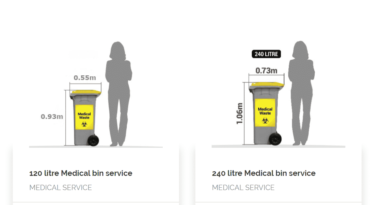The Next Step In The Upcoming UN Plastics Treaty 🌏
Energy Disrupter
UN Plastics Treaty 🌏: According to the esteemed Ellen MacArthur, the world has a “once-in-a-lifetime” chance to tackle plastic pollution with the upcoming UN Plastics Treaty. This coming November, an ambitious UN treaty, with proper talks and negotiations, a significant global impact on plastic pollution will happen. Find out more below.
In recent years, the world has come to grips with the massive environmental crisis posed by plastic pollution. From microplastics in our oceans to the mountains of plastic waste littering landscapes, the urgent need for global action has never been clearer.
In response, the United Nations has spearheaded a monumental initiative: the UN Plastics Treaty.
Launched in 2022, this international legally binding agreement aims to combat plastic pollution on a global scale. With plastic waste production set to triple by 2060 unless significant action is taken, the treaty is not just timely—it’s essential for the health of the planet.
It promises to reshape how we produce, use and dispose of plastics, with a strong emphasis on sustainability, circular economies and international cooperation.
Currently, we’ve had 4 Intergovernmental Negotiating Committees (INCs), with representatives from various member states negotiating until a legal framework is finalised to address complex international challenges, which, in this case, is the complete eradication of plastic pollution.
>Download Now: Free PDF Business Owners Guide To Commingled Recycling Bin Services
Upcoming fifth session (INC-5): most important part of UN Plastics Treaty?
The world is facing a crucial moment in the fight against plastic pollution, and according to Dame Ellen MacArthur, this is a “once-in-a-lifetime” opportunity to secure a transformative and ambitious UN treaty that can make a lasting impact.
In November, various UN-affiliated countries will convene in Busan, South Korea, for the final round of negotiations to develop a legally binding agreement aimed at addressing the full lifecycle of plastics—from their production and design to their disposal.
Ellen MacArthur’s strong beliefs to fight plastic waste
The upcoming treaty has the potential to reshape global plastic use, and the stakes could not be higher. Dame Ellen MacArthur, a former professional sailor turned environmental advocate, has been a leading voice in pushing for bold action on plastic waste.
Since retiring from sailing, she has dedicated her efforts to establishing the Ellen MacArthur Foundation, which works closely with businesses, educators and policymakers to promote a circular economy—a system in which materials are reused, regenerated and recycled, rather than simply discarded after use.
MacArthur’s central argument is that the UN treaty must prioritise building a circular economy for plastics. She believes that by adopting the “most ambitious treaty we can have,” countries can ensure the level of stability and commitment needed for businesses and governments to invest in long-term solutions to plastic waste.
According to MacArthur, this global treaty must give businesses and nations the certainty to make critical investments, which would accelerate progress in tackling the plastic crisis.
The importance of a circular economy
The core concept of a circular economy stands in stark contrast to the linear economy we currently operate in. In the linear model, products are manufactured, consumed and then discarded as waste. This extractive, wasteful system has contributed significantly to environmental degradation and resource depletion, with plastic pollution being one of its most visible and harmful outcomes.
MacArthur points out that plastics are only one symptom of this broader linear system, which is not only wasteful but also highly polluting. She emphasises that it could not be how the economy worked in the future, making it clear that moving toward a circular economy is essential for sustainability.
MacArthur highlights the already-made progress toward this goal. In 2018, the Ellen MacArthur Foundation, in collaboration with the UN and numerous businesses, launched a global commitment to eliminate unnecessary plastics, innovate more sustainable solutions and promote widespread recycling.
Businesses’ cooperation and proper regulation implementation go hand in hand
Those businesses that joined the initiative have outperformed the market in reducing plastic waste. However, MacArthur stresses that businesses alone cannot solve the global problem of plastic pollution.
Without clear policy rules stemming from the UN Plastics Treaty meetings, it will be difficult to shift the entire industry toward more sustainable practices. She notes that even the companies involved in this commitment recognise the need for comprehensive policy frameworks to support their efforts.
“The emphasis on the treaty needs to be in building that circular economy for plastics, with the most ambitious treaty we can have which will enable the stability for businesses to invest in a circular economy for plastics,” MacArthur argues.
This investment, she explains, is crucial not only for businesses but also for countries to develop the infrastructure needed to recycle plastic materials effectively.
“You need an ambitious treaty to warrant the investment,” she adds, underlining the importance of securing a robust agreement that provides both the framework and the certainty for long-term commitments.
MacArthur further elaborates that this is the perfect moment for countries to aim for the highest level of ambition in their negotiations. “This is the moment for countries to be as ambitious as possible,” she insists.
The treaty must focus on key elements such as defining and phasing out problematic packaging and hazardous chemicals, as well as implementing extended producer responsibility (EPR) schemes.
These EPR programs would place a tax on certain materials to support recycling efforts and help close the loop in the circular economy.
How crucial is the next UN Plastics Treaty?
She describes the upcoming treaty negotiations as a critical juncture. “This is a once-in-a-lifetime opportunity to set some global rules for plastic which help to shift us towards a circular economy.”
If the treaty is ambitious and well-defined, it could provide the investment stability needed to accelerate change across all regions, especially in areas where progress has been slower.
“If we can agree on something that’s robust enough to enable the investment to start the ball rolling, or to speed up that rolling ball… then we have the stability to invest,” she says.
However, MacArthur also warned of the risks of a diluted treaty during negotiations. A weakened agreement might not provide the necessary stability for businesses, countries or financial institutions to confidently invest in a circular economy for plastics. “There is a risk the treaty could be so watered down that it would not provide the stability for businesses,” she cautions.
UN Plastics Treaty: Conclusion
In conclusion, MacArthur calls for urgent and coordinated global action. Businesses around the world are pushing for consistent international rules and a level playing field to support their investments in sustainability.
“We need countries to match it and go for as ambitious a global treaty as we can,” she says.
By doing so, nations can provide the stability and certainty that is essential for businesses and economies to shift toward a sustainable future and ultimately reduce plastic pollution on a global scale.

















